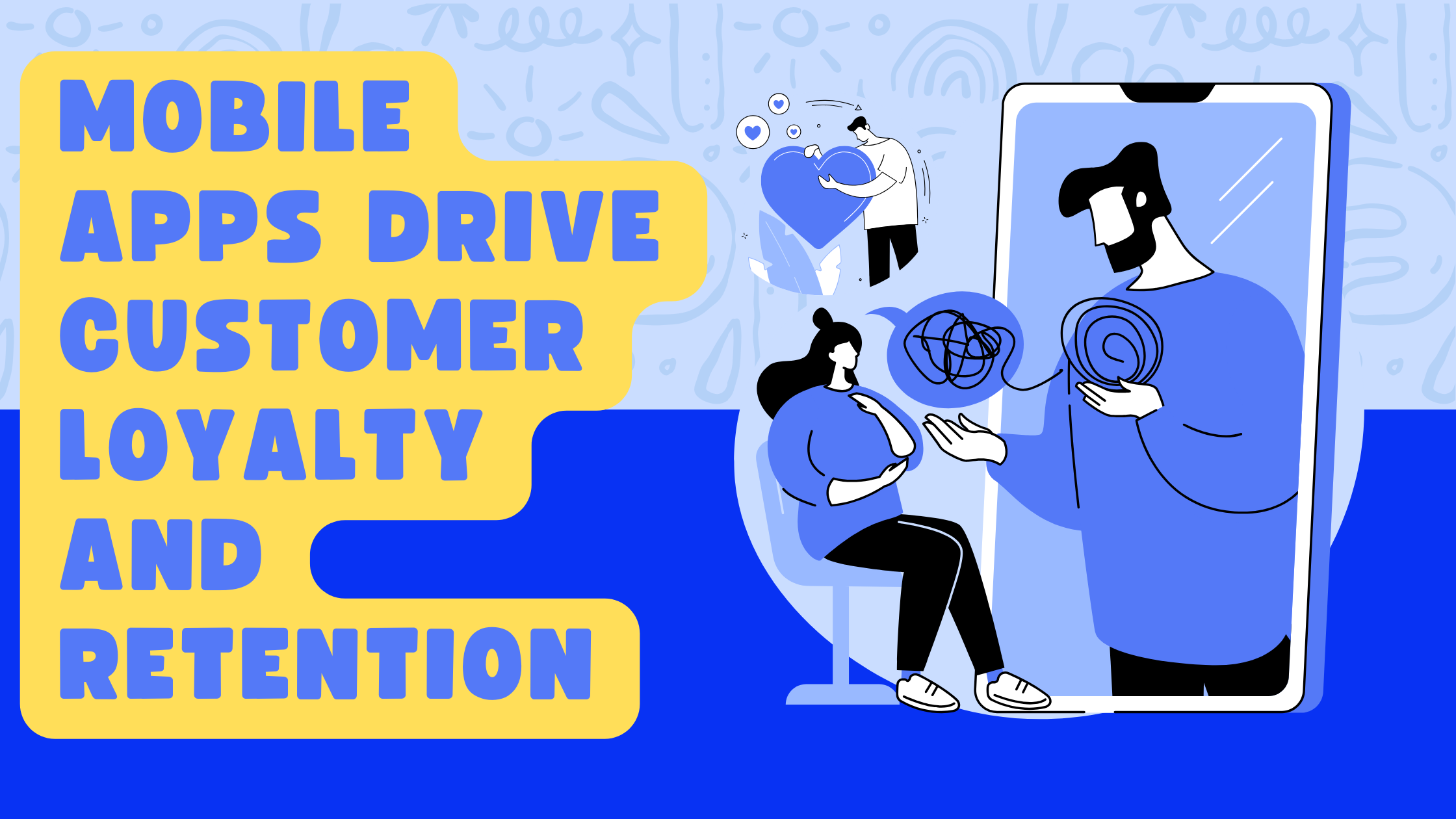Mobile Apps Drive Customer Loyalty and Retention
How Mobile Apps Drive Customer Loyalty and Retention for Businesses
In today's digital landscape, mobile apps have become a cornerstone for businesses looking to enhance customer loyalty and retention. With the majority of consumers relying on smartphones for their daily activities, businesses that leverage mobile apps effectively can create powerful connections with their customers. This article explores how mobile apps drive customer loyalty and retention, examining the key strategies and features that contribute to their success.
1. Personalized Experiences
Personalization is a significant factor in driving customer loyalty. Mobile apps enable businesses to deliver tailored experiences based on user preferences, behavior, and location. By leveraging data analytics and AI, businesses can provide personalized recommendations, offers, and content that resonate with individual users.
For example, e-commerce apps can suggest products based on previous purchases or browsing history. Similarly, content-driven apps can offer personalized content recommendations based on user interests. By delivering relevant and customized experiences, businesses can enhance user satisfaction and encourage repeat engagement.
2. Seamless User Experience
A well-designed mobile app provides a seamless user experience that fosters customer loyalty. Features such as intuitive navigation, fast load times, and a responsive interface contribute to a positive user experience. Mobile apps are designed to be user-friendly, offering easy access to services and information with just a few taps.
For instance, a food delivery app with an easy-to-use interface allows customers to quickly browse menus, place orders, and track deliveries. A seamless experience reduces friction and frustration, making it more likely that customers will return to the app for future transactions.
3. Push Notifications and Alerts
Push notifications are a powerful tool for keeping customers engaged and informed. Through mobile apps, businesses can send timely and relevant notifications about promotions, updates, and personalized offers. This proactive approach helps businesses stay top-of-mind and encourages users to return to the app.
For example, a retail app can send notifications about flash sales, new product launches, or exclusive discounts. These notifications can drive immediate action and increase the likelihood of repeat purchases. Additionally, personalized push notifications based on user behavior and preferences enhance relevance and effectiveness.
4. Loyalty Programs and Rewards
Mobile apps offer an excellent platform for implementing loyalty programs and rewards. By integrating loyalty features into the app, businesses can incentivize repeat purchases and foster long-term customer relationships. Loyalty programs can include points, badges, discounts, and exclusive offers that reward customers for their continued engagement.
For instance, a coffee shop app might offer a loyalty program where customers earn points for every purchase, which can be redeemed for free drinks or discounts. This gamification of loyalty encourages users to engage with the app regularly and build a habit of returning to the business.
5. Enhanced Customer Support
Providing exceptional customer support is crucial for retaining customers and building loyalty. Mobile apps can enhance customer support through features such as in-app chat, support ticket systems, and FAQs. These features offer customers convenient ways to seek assistance and resolve issues without leaving the app.
For example, a travel app might include a live chat feature that allows users to quickly get help with booking issues or travel inquiries. By offering efficient and accessible support, businesses can improve customer satisfaction and address concerns promptly.
6. Exclusive Content and Features
Offering exclusive content and features through a mobile app can drive customer loyalty by providing added value. Businesses can create app-only content, such as special articles, videos, or promotions, that are not available through other channels.
For instance, a fitness app might offer exclusive workout routines or nutritional advice to app users. By providing unique and valuable content, businesses can encourage customers to use the app regularly and stay engaged with the brand.
7. Integration with Other Channels
Mobile apps can integrate with other marketing channels to create a cohesive customer experience. By connecting the app with email marketing, social media, and websites, businesses can deliver consistent messaging and promotions across multiple touchpoints.
For example, a retail app can sync with the company's email marketing campaign to offer app-exclusive discounts to subscribers. This integration enhances the overall customer experience and reinforces the brand's presence across different platforms.
8. Data-Driven Insights
Mobile apps provide valuable data insights that can inform marketing strategies and improve customer retention. By analyzing user behavior, preferences, and engagement metrics, businesses can gain a deeper understanding of their customers and identify opportunities for enhancement.
For instance, app analytics can reveal which features are most popular, how often users engage with the app, and where they encounter challenges. Businesses can use this data to make informed decisions about app updates, marketing campaigns, and customer support improvements.
9. Gamification and Interactive Features
Gamification and interactive features can make the app experience more engaging and enjoyable. By incorporating elements such as challenges, quizzes, and leaderboards, businesses can create a sense of fun and competition that keeps users coming back.
For example, a language learning app might include interactive quizzes and progress tracking to motivate users and make learning enjoyable. These gamified elements enhance user engagement and encourage regular app usage.
10. Streamlined Transactions and Payments
A mobile app can streamline transactions and payments, making it easier for customers to complete purchases and manage their accounts. Features such as one-click payments, saved payment information, and secure checkout processes enhance convenience and reduce friction.
For instance, an e-commerce app with a simplified checkout process allows users to make purchases quickly and effortlessly. By providing a smooth and efficient transaction experience, businesses can increase conversion rates and encourage repeat business.
Conclution
Mobile apps have become a critical tool for driving customer loyalty and retention. By offering personalized experiences, seamless user interfaces, push notifications, loyalty programs, and enhanced customer support, businesses can create meaningful connections with their customers and foster long-term relationships. Additionally, features such as exclusive content, data-driven insights, and gamification further enhance the app experience and keep users engaged.
As technology continues to evolve, businesses that leverage mobile apps effectively will be well-positioned to meet the demands of modern consumers and stay ahead in a competitive landscape. Investing in a high-quality mobile app that meets the needs and preferences of your customers is a strategic move that can drive loyalty, increase retention, and ultimately contribute to long-term business success.








